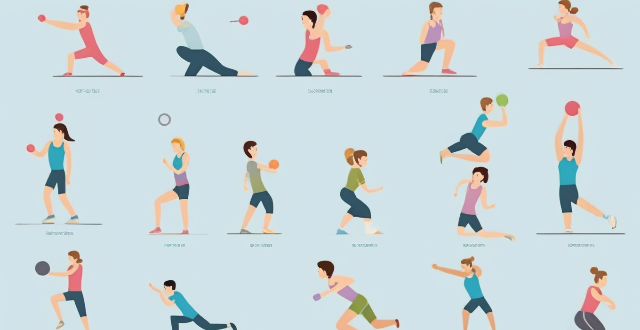This article discusses the impact of various sports and exercises on immunity, including aerobic exercise, resistance training, high-intensity interval training (HIIT), and yoga/meditation. It highlights the positive effects of these activities on immune function when performed regularly and appropriately, such as increased blood flow, enhanced immune cell production, improved cardiovascular health, and reduced inflammation. However, it also emphasizes the potential negative effects of excessive exercise or overtraining on immunity, urging individuals to find a balance between physical activity and rest.

Impact of Sports and Exercises on Immunity
There have been numerous studies conducted to explore the impact of various sports and exercises on immunity. Research has shown that regular physical activity can enhance immune function, but it is important to note that excessive exercise can also have negative effects on the immune system. In this article, we will discuss some specific sports and exercises that have been studied for their impact on immunity.
1. Aerobic Exercise
Aerobic exercise, such as running, cycling, swimming, and walking, has been widely studied for its positive effects on immunity. These types of exercises increase blood flow and oxygen delivery to the body's tissues, including the immune system. This helps to stimulate the production of immune cells and improve their function.
Key Points:
- Increased Blood Flow: Aerobic exercise increases blood flow, which helps to deliver oxygen and nutrients to the immune system.
- Enhanced Immune Cell Production: Regular aerobic exercise can stimulate the production of immune cells, such as natural killer cells and T-cells.
- Improved Immune Function: Aerobic exercise has been shown to improve the overall function of the immune system, making it more effective at fighting off infections and diseases.
2. Resistance Training
Resistance training, such as weightlifting and bodyweight exercises, has also been studied for its impact on immunity. While research in this area is still ongoing, some studies suggest that resistance training can enhance immune function by increasing muscle mass and improving metabolic health.
Key Points:
- Increased Muscle Mass: Resistance training can lead to increased muscle mass, which may help to support immune function by providing additional resources for the immune system to draw upon.
- Improved Metabolic Health: Resistance training can improve metabolic health, which may have a positive impact on immune function by reducing inflammation and improving insulin sensitivity.
- Potential Negative Effects: It is important to note that excessive resistance training can have negative effects on immunity, particularly if it leads to overtraining or injury.
3. High-Intensity Interval Training (HIIT)
High-intensity interval training (HIIT) involves short bursts of intense exercise followed by periods of rest or low-intensity activity. This type of exercise has gained popularity in recent years due to its time-efficient nature and potential health benefits. Some studies suggest that HIIT can enhance immune function by improving cardiovascular health and reducing inflammation.
Key Points:
- Improved Cardiovascular Health: HIIT can improve cardiovascular health, which may help to support immune function by improving blood flow and oxygen delivery to the body's tissues.
- Reduced Inflammation: HIIT has been shown to reduce inflammation, which may help to improve immune function by reducing the burden on the immune system.
- Potential Negative Effects: Like resistance training, excessive HIIT can have negative effects on immunity, particularly if it leads to overtraining or injury.
4. Yoga and Meditation
Yoga and meditation are mind-body practices that have been studied for their impact on immunity. These practices can help to reduce stress and promote relaxation, both of which can have positive effects on immune function.
Key Points:
- Reduced Stress: Yoga and meditation can help to reduce stress, which may improve immune function by reducing the release of stress hormones that can suppress the immune system.
- Promoted Relaxation: These practices can promote relaxation, which may help to improve immune function by reducing inflammation and promoting the production of immune cells.
- Potential Benefits: While more research is needed in this area, early studies suggest that yoga and meditation may have potential benefits for immune function.
In conclusion, there are several sports and exercises that have been studied for their impact on immunity. Aerobic exercise, resistance training, high-intensity interval training (HIIT), and yoga/meditation are all examples of activities that can potentially enhance immune function when performed regularly and appropriately. However, it is important to note that excessive exercise or overtraining can have negative effects on immunity, so it is crucial to find a balance between physical activity and rest.